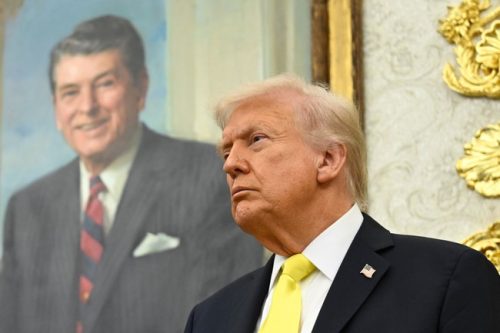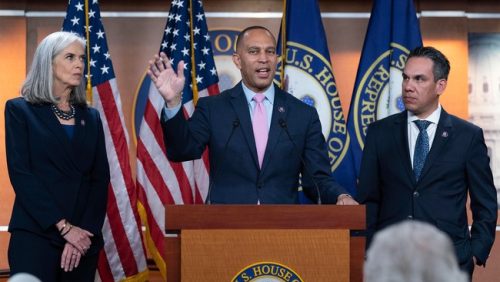Conservative commentators seized on a tense TV panel exchange that underscored growing doubts about President Joe Biden’s fitness for office, highlighting an autopen commutations controversy and a sharp response from CNN’s Scott Jennings when a fellow panelist dismissed concerns about Biden’s cognition.
The clip that circulated shows a panelist insisting there is no medical proof Biden was in cognitive decline, and that statement landed like a hand grenade. Republicans have been pointing to a pattern of errors and apparent confusion for years, and this latest exchange just amplified those claims. The discussion reopened questions around how decisions were being made and who was actually signing off on important actions.
The autopen commutations story has fanned the flames. Reports suggest several commutations were processed without clear evidence the president personally authorized them, and that raises serious accountability issues. If officials were moving documents without proper oversight, voters deserve answers and a full accounting.
Scott Jennings can’t believe what he’s hearing as CNN panelist insists there was “no evidence” Biden suffered from cognitive decline.
Scott’s face at the end said more than words ever could. Trying to reason with the unreasonable takes its toll.
JENNINGS: “[Biden] was, I think… pic.twitter.com/AxEnXWOuo3
— Vigilant Fox 🦊 (@VigilantFox) October 29, 2025
That’s why the panel exchange feels so important to conservatives watching the conversation unfold. When someone on the panel casually claimed there was no medical evidence of decline, it came off as dismissive. Many on the right see that dismissal as part of a broader media reflex to protect Democratic leadership rather than seek the truth.
Scott Jennings’ reaction captured the moment’s tension and frustration for viewers who’ve watched this play out in real time. His follow-up questions pushed the panelist on the point of evidence and the curious decision by the president’s physician to invoke the Fifth. That invocation to the congressional committee is something many Republicans find deeply suspect and worth further scrutiny.
JENNINGS: “You don’t agree he was in cognitive decline?”
PANELIST: “I do not, because there’s no medical evidence to say that. Now, that’s a political talking point for some of you on the right, but there’s no evidence to point to that, Dr. Scott (mocking). Dr. Scott, do you have evidence to point to that?”
JENNINGS: “Do you know why the president’s physician took the Fifth Amendment before the committee?”
PANELIST: “No. The same reason why Republicans have taken the Fifth Amendment under oath.”
JENNINGS: “Listen, if you’re here to argue the sharpness of Joe Biden, I commend you on your effort.”
The exchange highlights two competing instincts: a demand for documentary or medical proof versus common-sense observations about daily performance. Conservatives argue that real-world behavior, repeated gaffes, and troubling patterns of decision-making should count for something. For many voters, repeated public missteps are evidence enough to question whether someone should hold the presidency.
Republicans also point out that the White House’s pattern of secrecy and damage control fuels skepticism. When staffers step in to clean up presidential errors or insist a signing was routine, it only deepens concerns. Accountability matters, and evasive answers from aides or the president’s inner circle do not help restore confidence.
There’s also a broader political angle at play that the right isn’t shying away from. Democrats and some media outlets repeatedly downplay or dismiss cognitive concerns as partisan attacks, which conservatives view as biased. That perception drives conservative audiences to push harder for transparency, records, and direct testimony under oath.
The panel moment gave Republicans a clear sound bite to make that argument on larger platforms. Jennings’ pointed questions highlighted a refusal to accept blanket reassurances without evidence. That resonated with viewers who want clear public records and truthful answers about who was making decisions and why.
Beyond the clip itself, the autopen matter raises structural questions about presidential authority and administrative processes. How many other important papers might have been rubber-stamped without clear presidential involvement? If chain-of-command problems exist, they’re not just political trivia; they’re governance failures.
Voters deserve an honest accounting on all fronts, from documented medical records to the mechanics of how commutations were handled. Republicans will keep pressing these issues because they see them as central to national security and public trust. The debate isn’t just about sound bites on television; it’s about whether the system worked as the Constitution intended.
For the moment, clips like this one serve as reminders that the public conversation about leadership capacity is far from settled. Conservatives will keep raising questions and demanding answers, and they’ll use moments like Jennings’ exchange to keep the pressure on. That’s the political reality worth watching as this story unfolds.






